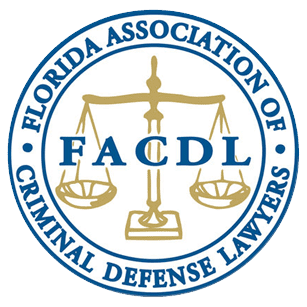Reckless driving is a key component in the definitions of several crimes, such as vehicular assault and vehicular homicide. However, reckless driving is actually a crime of its own. If you have been accused of reckless driving, you are likely concerned about what happens next. This criminal traffic offense can carry harsh penalties, such as paying fines and spending time behind bars. In order to regain your freedom, you must avoid a conviction at all costs.
Sarasota reckless driving lawyer Erika Valcarcel understands how difficult it can be to cope with this charge. With experience as both a prosecutor and a defender, she can anticipate the prosecution’s strategy in order to devise an effective defense and will do whatever it takes to get your charges eliminated in court. Call Erika Valcarcel, Criminal Defense Lawyer, P.A. at (941) 363-7900 now to see how we can help protect your freedom.
Florida Reckless Driving Laws
Section 316.192 of Florida’s Statutes states that reckless driving is characterized by the following factual elements:
- Driving a motorized vehicle; and
- Doing so willfully or with wanton disregard for the safety of others
Willfully means intentionally or purposefully, while wanton is a word used to describe indifference to consequences as well as the knowledge that certain actions will likely lead to personal injury and/or property damage. The two are not always linked, though, as it is possible to drive recklessly on purpose but without the knowledge that doing so will result in severe consequences.
Driving away from a police officer after you have been told to stay put, for example, would be seen as reckless driving that was done so willfully. In this instance, there was no intention to do harm, but the recklessness was committed on purpose. Driving through a busy street market, on the other hand, would be an example of reckless driving committed with wanton disregard for safety. Here, the vehicle operator knew that his actions would likely lead to a form of injury or damage.
Consequences for Reckless Driving
The penalties assigned for reckless driving depend on the circumstances surrounding the crime as well as the number of past offenses. Reckless driving is almost always filed as a second-degree misdemeanor, but the penalties increase for each subsequent offense. The consequences of reckless driving include, but are not limited to:
- Reckless Driving (First Offense): Up to 90 days in jail or up to 6 months on probation and up to $500 in fines
- Reckless Driving (Second or Subsequent Offense): Up to 6 months in jail and up to $1,000 in fines
There are also collateral consequences that can plague you, even after you have been released from jail. Finding a job may be all but impossible, as few employers jump at the chance to hire someone with a criminal record. Going back to school to further your education can also be a challenge. Almost all colleges and universities thoroughly vet applicants before granting them admission.
Defenses Against Reckless Driving Charges
A skilled Sarasota reckless driving lawyer can use a number of strategies to help you avoid a conviction for reckless driving. Often times, a person is accused of driving recklessly when they were actually driving in a careless or negligent manner. This distinction is important, as driving carelessly is treated as a civil infraction, punishable by a fine and/or points on your license. Another effective defense is proving that there was no one and no property to injure or damage. If you were arrested for reckless driving in an open field, for instance, it is impossible to be charged with reckless driving.
Contact Sarasota Criminal Defense Attorney Erika Valcarcel Today
Being accused of reckless driving can be distressing. You may have been falsely accused, or you may feel as though you are being harshly punished for a minor crime. Sarasota reckless driving lawyer Erika Valcarcel understands these concerns. With years spent on both sides of the courtroom, she knows how to best navigate the system. Attorney Valcarcel will also listen to your side of the story. When all of the details are known, she can often paint an entirely new picture. Call (941) 363-7900 to discuss how to get your charges dismissed or reduced.


